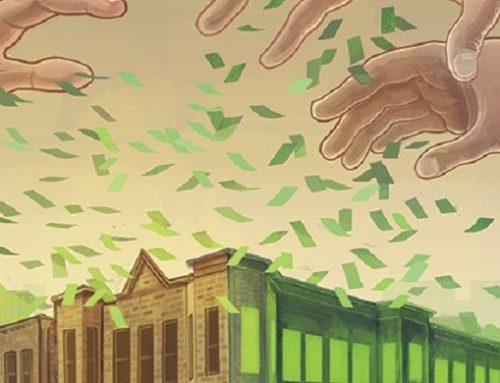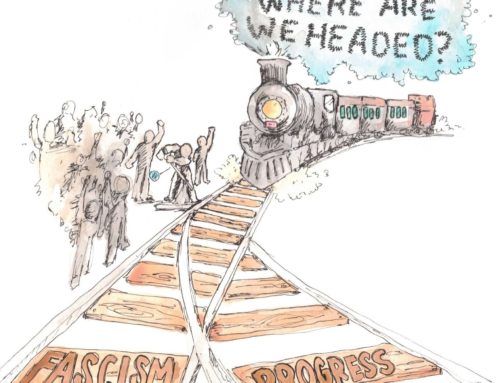By Doug Enaa Greene
“Let’s not change bosses, let’s change life.”
-May 1968
One of the constants of election year 2012, aside from nearly identical parties, is the focus on jobs. Whether it is Obama’s latest stimulus or Romney’s promise to “unleash the entrepreneurial spirit of America,” both candidates claim they want to create jobs. For millions out of work or barely getting by, a good job seems like a godsend.
Many on the left, including revolutionaries, are pressing for “jobs for the 99%.” We can decide to not see the worker of a different skin or gender as our competitors, oppressed by the same system as us. Yet the call for jobs tends to ignore and obscure the nature of work under capitalism, which at its very roots is fundamentally exploitative and alienating.
Training starts early. You go to school and learn the three R’s. You learn some other essentials too, such as following orders, saluting the flag, and deciding what to be when you grow up. In the USA, at least, a good portion of students goes to some sort of college. That means spending two to four years majoring in a subject that will land you employment.
Even for those “lucky” enough to go to college, doing what you love is considered “unrealistic.” Making a living (read: money) is considered the normal motivation for getting an education. Once you’ve graduated from college, probably with an average of $25,000 in debt, you’ve got to start paying off your loans. To get that money, you need to learn how to sell yourself.
We live in a society where we have to compete for jobs. A few years ago, at least in the USA, it was relatively easier to find employment. Now the ‘new normal’ is one of long-term unemployment. Workers applying for a job may find themselves next to twenty competitors. Those competitors are foes who can take away our daily bread. Indeed. Robert Reich recently wrote that half of the last graduating college class still hadn’t found a full-time job one year later.
There’s more to work though. Going to school as children, we see the many posters in classrooms that exalt us to “use our imagination” and “to fulfill our potential.” There is a certain truth to this. Humanity through brain and brawn throughout history have built great monuments, painted scenes to dazzle the eye, and written books that echo into eternity.
Yet our imaginations and potential mean something else on the job. When you’re on the clock, you belong to the boss. Workers cynically go through the motions, without ever really using the talents or the passions that they have inside of them. Your powers of body and mind produce for someone else’s benefit, not your own.
Our ability to create, which makes us human, is not only denied us on the job, it is used against us to enrich the boss. The collective fruit of our bodies and brains builds new and innovative machines that work us even more to the bone. Workers are bonded to those machines in some sort of unholy matrimony.
While our creative powers are drained by an alien class, we can’t enjoy them to create for our collective social benefit. And we work for 8, 10, 12 hours or more. When we punch out and head home (should we be lucky enough to have one), we end up being so exhausted that it is unlikely we can create much once we have the time to do so.
Instead we indulge in our animal side by consuming food or drink to make us forget the drudgery of our lives for a few hours. While the animal comes out, the human side our ability to creatively produce is associated with the toil of work.
For slaves, being sold on the auction block was an especially ugly affair. A slave was stripped down and paraded before the assembled masters. The slave would be examined, probed and prodded. Indeed, they were made to stick out their tongues and show their teeth, etc. A human face and heart were never seen, just a beast of burden. A slave was sold for a price to a master. That slave had no say in the matter. It was of no concern to the masters if a slave was torn from their families. The bottom line was all that counted. The situation now is different. A worker is not a slave who is sold once and for all. Rather, a worker has to be sold again and again. Yet that worker still must sell him or herself.
Nowadays, there is a whole ritual for entering the job market. You learn the type of suits to wear; how to comb your hair. A resume has to follow accepted formats, and having an inconsistency of font or format can ruin you … no matter how impressive your credentials are! There is a whole set of habits and rules to being interviewed: do you look the employer in the eye or not and for how long? Is your handshake too strong?
There is an irony to the whole process: you have to answer the employer’s questions in the expected way, but in a way that makes you stand out. There are always new gimmicks and edges to the whole job search process as well. Turn on CNN and you’ll hear about “the latest way that experts say you can gain a job at an interview.” (Indeed, the shelves at the bookstores are full of “get a job” self-help books.)
Once you’re sold, and in this economy you may as well count your lucky stars, then what? You are now an employee! You are living the American Dream! You can buy a home, car and all the good things in life—or at least maybe pay your rent this month. Scratch the surface and you will see something a little more.
You work in conditions that resemble a cage. Produce. Tow the company line. Don’t slack. Come in early and stay late. Produce more and faster. Once you’re working, you learn to ingrain yourself into the whole matrix of written and unwritten rules. The downside of your “success” story soon becomes clear: you are not a free being for the majority of your waking hours.
As a worker, you can’t get rich. You enrich someone else. It is only by the labor of workers that anything gets made. You bust your ass and sweat yourself dry, but the end profit doesn’t belong to you. You see none of the benefits whether you are building a car, running a cash register or picking the grapes.
The profits go to the ones on top, the bosses with the plush offices and offshore accounts. Whatever you produce, in whatever manner, you’ll get enough (maybe!) to pay for your bare needs. Workers sow. The bosses reap. Yet the immediate boss, isn’t making much more than the average worker, they enforce the rules of the owner to keep profits flowing. The low level manger is often hated by the workers for making them labor, and berated by the owner to increase productivity.
Everything in society from the production relations and ideology produces and reproduces competition, so we have to combat those who are in our way. If you’re on the job and can get ahead by screwing over your fellow worker, why not? After all, it’s a dog eat dog world.
Systems of domination and racism are thrown into this already acidic mix. A person with darker skin on the bottom can be seen as one who is not only less than human but threatens meager privileges. Or if you have that darker skin, you may hate and fear the other as someone who wants let you have a living but would crush you beneath the iron heel.
“Illegal” workers may be seen as the cause of a multitude of social ills from taking jobs to not paying taxes. So they need to be driven out. The remedy is so often for the “true citizens” of all classes to band together and drive the intruders out.
Work may be a hated endeavor, but it is the only way for us to get the money that we must acquire in order to satisfy our basic needs. So we go through with it, but not without resistance. The inhuman nature of work, of being immersed in an exploitative environment compels us to rebel against it consciously or not. The fight starts early. When the alarm bell rings, we want to bash it in with a hammer.
On the job, even the most studious worker will find a way to slack off once in awhile. Sometimes a worker comes back a little late from lunch and hopes that no one notices. Maybe you goof off with a friend in another department in order to bring joy into the day because the job certainly doesn’t provide it. Sometimes you steal from the company to get back a few scraps that were originally taken from you.
Perhaps our struggle can take more conscious forms. We can see our individual condition as something that is not individual, but as the collective lot of a class of those alienated and exploited. We can understand and see a perfect pattern. We can name our enemy: capitalism.
We can explain how the system’s mechanisms seek to grind us down. We can decide to not see the worker of a different skin or gender as the enemy. Resistance can become more than just singular acts that just make the work day easier to endure, but rather can challenge nature of work and the ruling class it enriches.
Work is a necessary evil under capitalism. We need work to provide for our needs. At the same time our labor is used to enrich the master class. A comprehensive job program promised by the politicians doesn’t even address the systemic nature of the problem: the exploitative and alienated nature of work under capitalism is written into its very genetic code. This is a situation that cannot be reformed.
Now is the time to realize that the chains of work under capitalism keep us from exercising our potential and to shatter the monstrosity once and for all.






Thank you, I’ve recently been searching for information about this subject for a while and yours is the
greatest I’ve discovered till now. However, what concerning the bottom line?
Are you sure in regards to the supply?